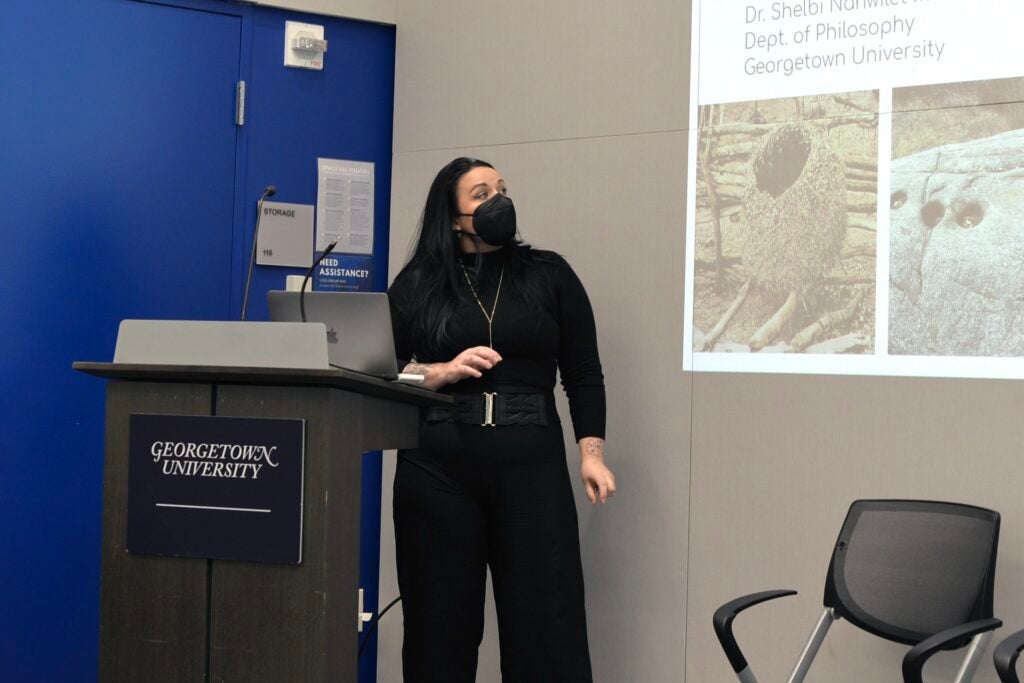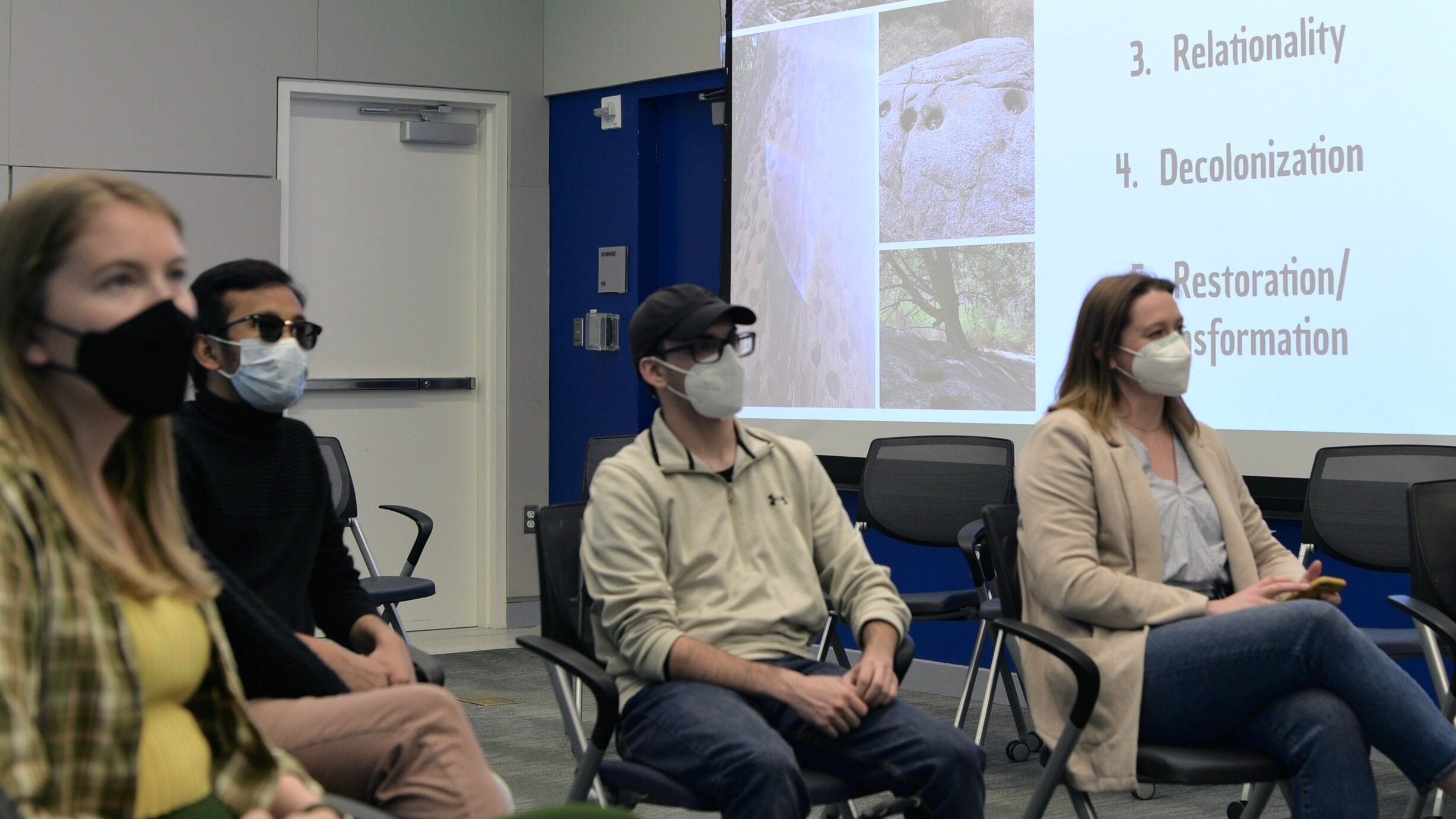Indigenous Philosophy and Creating a More Sustainable Future for Georgetown
Ahead of Earth Day, the Office of Sustainability hosted an event and open discussion around how Indigenous philosophies can, and should, be interwoven into the university’s sustainability framework. Shelbi Nahwilet Meissner, an assistant professor in the Department of Philosophy of Georgetown’s College of Arts and Sciences, led the discussion, focusing on Indigenous environmental policies and how they can inform our relationship to both the natural world and each other.
“I think Georgetown is in the unique position to build novel and transformative relationships with Indigenous communities around sustainability, intergenerational justice and climate justice,” says Meissner. “Centering Indigenous thought and voices in a sustainability plan feels like a natural fit — Indigenous communities have been the stewards of these lands for thousands of years, feel the most impacts from climate injustice and colonialism and have important adaptation strategies — and I’m excited to see the Office of Sustainability take up this opportunity in a meaningful and serious way.”

Meissner addressing attendees.
Meissner, who specializes in American Indian and Indigenous philosophy, feminist epistemology and philosophy of language, invited attendees to connect indigenous philosophies, like sovereignty and decolonization, to institutional efforts to create a more sustainable, equitable future for Georgetown.
The university’s approach to sustainability recognizes a “quadruple” bottom line: people, planet, prosperity and purpose, guided by Catholic and Jesuit values and a commitment to the common good.
“As Georgetown develops its first sustainability plan, we wanted to think about the relationship between sustainability and schools of thought such as Indigenous philosophy,” says Dan Guilbeault, the director of sustainability for campus & community. “In our discussion, we identified connections – as well as areas of tension – between Indigenous philosophy and sustainability. This included powerful concepts like relationality, opportunities to co-flourish, areas of ‘shared care,’ and the symbolism of names and terms.”
Throughout the discussion, participants focused on seeing the world as it could be, rather than as it is. The systems and institutions that have created an unequal, unsustainable current reality are not chiseled in stone, but can be rebuilt by humans just as they were constructed by humans.
“At this event, the strong desire the students have for tangible change was so apparent,” reflects Meissner. “I am honored to learn from these students and humbled by the really compassionate futures they are trying to build. I’m looking forward to seeing how other university entities follow the example set by the Office of Sustainability in centering Indigenous voices and our phenomenal students in their planning processes.”
The university is working towards a new sustainability plan to be released in the Fall. Students, faculty and staff can get involved with the planning process by signing up to participate in working groups, stopping by the Office of Sustainability during office hours to offer input and brainstorming via the MindMixer online tool.
